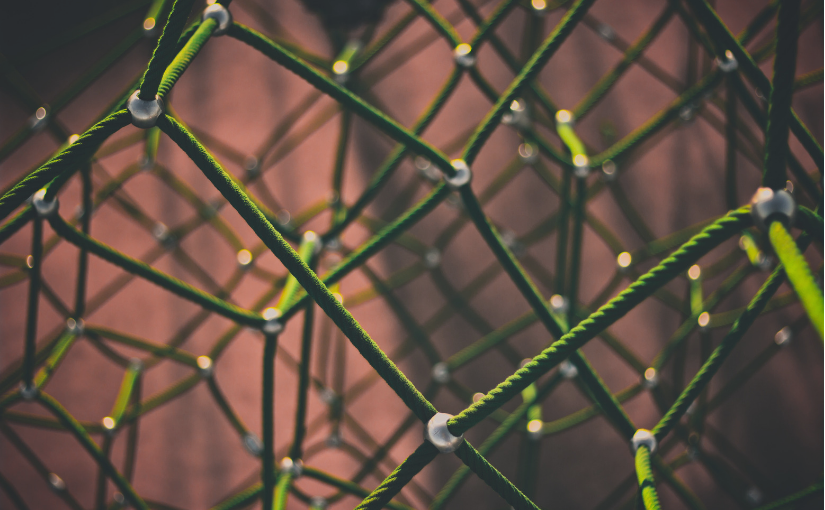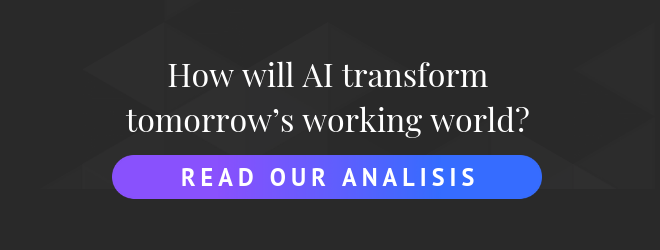The technology made famous by the rise of Bitcoin could give consumers more information about the products they buy.
Globalization has made value chain management a real headache. Just a century ago, the value chain remained relatively simple, because most companies produced locally. But that has changed. Today it is not uncommon for the life cycle of a product to pass through several countries, combine different means of transport (truck, boat, plane…), involve multiple companies, and issue invoices and payments to a multitude of participants in the production process. The whole process from creation to sale now takes several months. As a result, the production process has become less and less transparent for consumers who can no longer easily access that information.
How can consumers be sure that the fish they’re about to buy at the supermarket wasn’t caught in an area where the activity has been made illegal to preserve marine wildlife? How do you know if that sweater you want to offer to someone for the holidays was not made by children? There are, of course, labels that help you to find your way around the whole process, but the fact remains that, in most cases, consumers have very little information on the actual origin and production process of the products they’re buying.

The solution: Blockchain
To restore greater transparency to value chain management, several companies are now considering a new solution: Blockchain. This technology has recently gained popularity with the general public thanks to its application in the cryptometer sphere, and with Bitcoin.
It’s much simpler than it seems. It is a decentralized database, which means that the information is not held by a central entity, but by all participants. Thus, in the case of Bitcoin, the transaction register is not kept by a bank. On the contrary, the information is transparently accessible to all users to avoid fraud. For example, if someone tries to modify the database to increase his fortune in Bitcoin, security is ensured by network members themselves, who validate each new transaction using complex cryptographic techniques which are based on game theory.
While it is mainly known for its applications in the financial sphere, Blockchain can actually be used in all areas of the economy, since it is simply a different way of storing information and value chain management is a particularly data heavy sector. Since information is accessible to everyone in the Blockchain in a transparent way, it could fight against the current lack of transparency that characterizes the production process.
Blockchain vs food poisoning
This isn’t science fiction: some companies have already begun to explore using Blockchain to avoid food poisoning in the food sector. For example, last July American retail giant Walmart mandated its salad and spinach suppliers to implement a Blockchain dedicated to food tracing by January 31, 2019. Earlier this year, Romaine lettuce contaminated with E. coli bacteria caused a health crisis in the United States, killing five people. Walmart’s initiative aims to prevent this type of epidemic in the future, by bringing greater transparency to food lifecycles using Blockchain.
However, in order for such an initiative to work, one must cover as much of the market share as possible. That is why Walmart has joined the Food Trust Initiative. Launched by IT giant IBM, the initiative aims to promote the use of the Blockchain for food traceability and includes other retailers such as Unilever and Kroger. The program is currently being tested on a large scale. By the summer of 2018, half a million transactions had been recorded on this Blockchain, tracking the full life cycle of 200 inventory management units. As part of this initiative, Walmart is also working with IBM and a Chinese university to improve the traceability of pork raised in China.
![]()
Other initiatives to improve traceability through the use of technology have been carried out in the past. In the early 2000s, Walmart tried to impose the installation of RFID chips on packaging to better track the life cycle of products. But this initiative, which was too costly for suppliers, was short-lived. The Blockchain, on the other hand, would offer benefits to consumers, suppliers and distributors alike: providing more transparent information for the former as well as reduced risks and costs for the latter two.
“In the case of the E. coli outbreak last spring, since product traceability was not satisfactory, it was impossible to know which stocks of lettuce had been contaminated. As a result, large quantities of healthy products had to be destroyed for safety. Millions of dollars have been lost. With a Blockchain-based system, it would have been possible to quickly identify the region and the farms where the contaminated products originated, and thus target only stocks from there,” explains Brian Behlendorf, Executive Director of Hyperledger, a non-profit organization that promotes the use of the Blockchain for concrete commercial purposes. The Blockchain designed by the IBM Food Trust Initiative is based on Hyperledger technology.
For a more ethical capitalism
Obtaining better traceability of products is not only of interest for public health. By allowing greater transparency in the value chain, the use of Blockchain could also promote more ethical and environmentally friendly production processes.
Its use would meet a twofold need: For brands, it would help tell a story about their products by adding a humanist angle. For consumers, it would mean a rise in the demand for quality products, produced in satisfactory working conditions that respect the planet. A change like that that would complete and improve the emergence of fair trade-type labels that have been flourishing in recent years. Brands that comply with human and environmental standards could thus demonstrate to their customers that they are meeting their commitments. Those whose eco-responsible or humanitarian brand identity is only a façade would inevitably be unmasked.

Last August, Coda Coffee, a coffee business based in Denver, Colorado, sold the very first traceable coffee using the Blockchain. By scanning a QR code on their coffee bag, customers can consult all stages of its life cycle, from bean harvesting to sale, via their smartphones. To set up this system, Coda Coffee has teamed up with Bext360, a Denver-based startup that uses Blockchain to ensure product traceability. Bext360 designed a machine that was installed on the farm that Coda Coffee uses to source coffee in eastern Uganda. It analyzes the coffee beans and divides them into batches, each with a serial number, and then sends the data through the Blockchain to be stored throughout its life cycle. And they aren’t the only ones. Another startup called Provenance is developing a system to track the origin of salmon, in order to avoid overfishing and protect the working conditions of fishermen.
Of course, production ethics don’t only concern the food sector. Everledger, another Blockchain company, works with the diamond industry to ensure that diamonds are extracted under satisfactory conditions and are not used to finance military activities (as “blood diamonds”). “Twenty years ago, the diamond industry introduced the Kimberley Process, a traceability standard designed to track the life cycle of each diamond,” explains Brian Behlendorf.
“But it is a very cumbersome and centralized process, with the risk that hackers could infiltrate the database and modify it to add fraudulent diamonds, for example. The major companies in the industry are setting up a Blockchain to make the process more efficient and decentralized. By giving each diamond a digital identity on the Blockchain, you can follow its entire path from extraction to sale, ensuring that it has been extracted under the right conditions, while limiting the risk of fraud and counterfeiting.”
The possibilities are endless. Medical Genomics, based in Boston, uses the Blockchain to store information on different cannabis varieties, which is a booming market in some American states. The Chinese company Walimai is using this technology to fight counterfeit products, and so on.
“The best way to encourage companies to behave ethically is to create a business model that is both effective and rewards good practice. The Blockchain is not a miracle solution, but it can undoubtedly be a piece of the puzzle,” concludes Behlendorf.
The Blockchain could be a guarantee of greater transparency and better product quality for consumers while giving virtuous companies an important commercial argument in an era where ecological sensitivity and ethical consumption are on the rise. That said, if this technology is ever to go mainstream, there will be a need for pedagogy to reduce its reputation for complexity.

